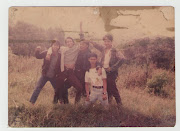Brain Quickly Remembers Complex Sounds
Posted: Monday, June 7, 2010 by minangka in Labels: Health, insight
Memorizing patterns in random, confused noise is easier than it sounds. According to a new study, repeated listens alone are enough to teach the brain 100 percent accurate recognition.
"The auditory brain seems to be fairly plastic over fairly short time scales," said lead researcher Daniel Pressnitzer of the Centre National de la Recherche Scientifique in France.
Researchers subjected volunteers to randomly generated samples of noise that were added to a base of meaningless, complex sound. First perceived as an "indistinct hiss," the background gave way to the half-second long snippets, which sometimes repeated.
After playing a noise pattern several times, the researchers discovered that listeners nearly always recognized the noise pattern when it played again. Two listens were enough for those with a trained ear, and only about 10 listens were enough for those with less experienced ears.
"It seems like a large number of listens, but you have to remember that the things we played to these people were completely unpredictable sounds. They really just sounded like: psssh," Pressnitzer told Livescience. "For these sounds that are quite complex and completely unpredictable, it's a bit like, if you were trying to memorize 20,000 random numbers, and you just have them 10 times replayed for you.”
The listeners were never told that there was anything for them to remember, said Pressnitzer.
Participants could recall the sound weeks later, leading scientists to conclude that this auditory mechanism was not simply fast, but solid and long-lasting.
"That's quite surprising, because there's really no way they could have rehearsed in their head whatever it is they wanted to memorize," Pressnitzer said. "And also, they didn't really know that we were going to call them and play them the same sounds after a little while, so it just stayed there for some reason."
The results imply that auditory neurons rapidly adapt to a given sound stimulant, and do so in a manner that plays a "very effective role in the learning of sounds," the researchers said in a statement.
Previous studies on sound and memory have focused on speech or pure tones, Pressnitzer said. Desire to fill the gap between these two “extremes,” particularly the timbre of a voice and how people learn new sounds, inspired the study.
The study's results show that auditory memory is as impressive as visual memory, but in different ways, Pressnitzer said. While complex images can be remembered without repetition, audio memory seems to require that repetition take place in order to come into effect.
"Maybe hearing is more tuned to detect repetitions or patterns that reoccur in an environment, whereas vision could take advantage of the fact that even when you take a picture you have a different time limit, so you actually produce your own active exploration," Pressnitzer said.





